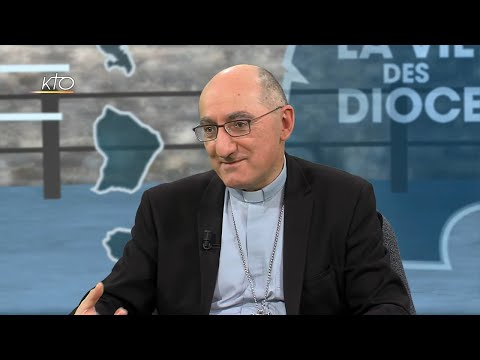French bishops' conspiracy to change Church teaching on homosexuality
Recognition at the bishops' meeting
Homosexuality: initiatives in the Church of France to change the discourse
In France, a number of Bishops have proposed that the Pope reformulate the paragraphs of the Catechism of the Catholic Church concerning homosexuality. In addition, at the request of the French Bishops' Conference, theologians are working to make the institution's message on the subject more audible.
The meeting was far from trivial. On Tuesday 28 February, Archbishop Hervé Giraud welcomed to his archdiocese of Sens-Auxerre members of the Reconnaissance association, which brings together parents of homosexuals and fights for greater recognition of their dignity within the Church. The archbishop praised their commitment. In recent years, the work of associations, the growing number of pastoral services for homosexuals in the dioceses, and the removal of taboos in society have prompted some people in the Church to reflect on homosexuality.
Beyond the pastoral dimension, some bishops are even working discreetly to rework the doctrine. This is crystallised in four paragraphs of the Catechism - 2357, 2358, 2359 and 2396 - which are the focus of criticism from associations for the defence of homosexuals in the Church. The wording of paragraph 2357 in particular, which describes "acts of homosexuality" as "intrinsically disordered", is particularly criticised.
"The issue of homosexuality involves more than just itself".
The Archbishop of Sens-Auxerre confides that, during his ad limina visit to Rome in September 2021, a question about the drafting of these articles was put to Cardinal Luis Ladaria, President of the Dicastery for the Doctrine of the Faith - the guardian of dogma - and then to Pope Francis. Pope Francis then invited the bishops to propose a new wording for these paragraphs. A number of bishops have since taken up the task and sent Francis a rewrite. "These proposals must obviously be examined by the competent dicastery and submitted to the Pope's discernment", explains Mgr Giraud.
While such an initiative is indicative of the internal movements within the Church of France, it seems unlikely that it will lead to any change in doctrine. I don't see how a fundamental change could take place," confides a Vatican source, "because the issue of homosexuality really involves more than just itself: the anthropology and sexual morality of the Church".
Without touching the catechism, the idea that the Church's approach to the subject of homosexuality needs to be made more audible is gaining ground. At the request of the National Family and Society Service of the Bishops' Conference, three theologians are working to update the texts available on the CEF website on the subject. They have listed twenty or so commonly asked questions, and have drawn up answers aimed at explaining the Church's message in a way that is adapted to today's context.
The project began with the observation that some of the content was no longer appropriate. "The Bishops' Conference realised that what was available on its website was not fresh, and that it needed to be rewritten in a way that was appropriate to the questions being asked by people today", explains Dominique Foyer, Professor Emeritus at the Faculty of Theology at the Catholic University of Lille and a participant in the project, who insists: "We were not asked to renew the Church's thinking".
Taking account of today's questions
Among the questions addressed by the theologians is the meaning of "natural law". "Can the natural law be invoked to condemn homosexuality? asked the specialists, who also tackled the subject of the interpretation of biblical texts and the attitude to adopt towards homosexuals. Our aim was to write a text that the bishops would be likely to approve", Father Foyer sums up. It had to be acceptable theologically and pastorally, while taking into account the expectations of today's men and women".
The novelty therefore lies more in the method used than in the substance of the message. The theologians involved homosexuals and associations dealing with the issue of homosexuality in the Church - including the a Reconnaissance associations - in the drafting process, and incorporated their feedback. Once this stage has been completed, the editors will forward their work to the National Service for Family and Society. At this stage, the deadline for the process is not yet known.
These internal movements within the Church are closely scrutinised by gay rights groups. "I'm convinced that the Bishops' voice is opening up a little, whereas it used to be very closed," confides Jean-Michel Dunand, founder of the Bethany Communion, a "prayer fraternity at the service of homosensitive and transgender people". He is still waiting for "the discourse to change": "Otherwise, no matter how much progress we make on a pastoral level, there will always be this mortifying tension.










.jpeg)

Comments